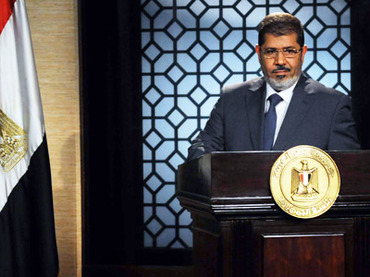Iran will continue to enrich uranium regardless of whether a Republican or a Democrat becomes president of the United States in 2009. At the same time, Washington will oppose any Iranian nuclear program – even a civilian program – because this will only contribute to the stability of the regime in Tehran. As a result, nuclear tensions are likely to bedevil American-Iranian relations for years to come. Iran, it is often claimed, has no need for nuclear power, given its abundant oil and natural gas reserves. But the Iranian government is under economic and political pressure to supply increasing amounts of electricity to its growing population and fragile economy. Using oil or natural gas for domestic electricity threatens oil and gas exports, which are the principle source of government revenues. Indeed, with domestic oil consumption growing at a higher rate than production, government revenues from oil exports are already in decline.
Thus, nuclear power will halt the decline in government revenues by freeing more oil and natural gas for export. Iran’s natural gas resources, if developed, would not be a substitute for cheap nuclear power, because gas is more profitable in other uses than in power generation.
The Iranian government fears that electricity shortages, slow economic growth, and high unemployment will turn the populace against it. As social tensions increase, political turmoil will follow.
Nuclear power offers the possibility of cheap, plentiful electricity that will contribute to social and political stability. Iranian experts argue that, in considering the trade-off between internal unrest and external sanctions, the Iranian government must choose between domestic security and international security.
Domestic pressure could very well bring down the regime, but international pressure will not. History is on the side of the Iranian government. The Islamic Revolution has survived a brutal war with Iraq, economic sanctions, and decades of international pressure and isolation from the US. Moreover, Iran’s leaders remember that the shah was forced to flee the country in 1979, despite having strong international support. While there may be security reasons for any future US administration to oppose even a civilian nuclear program, American policymakers also recognize the strategic impact that nuclear energy will have in stabilizing the Iranian regime. The US and Iran have been fighting proxy wars since 1979, and their ongoing conflict means that proxy wars will continue in Lebanon, Iraq, Afghanistan, and the Caspian Sea region, as will trade and investment wars. Indeed, as long as China and Russia have money to invest and arms to sell, most United Nations sanctions will be toothless.
Iran will continue to threaten the world community with the oil weapon, but its actually using oil in this way is highly unlikely. It is not in Iran’s interest, under any scenario, to decrease oil exports, let alone halt them. However, domestic pressure, a sense of nationalism, and the need to improve Iran’s bargaining position with Western countries might force the Iranian government to respond to harsh UN sanctions or an air attack on its nuclear facilities. But even under these extreme circumstances, Iran will still need its oil revenue. A symbolic cut or embargo, while possible, would have little impact on world oil markets.
Iran’s government has more effective options to respond to attacks from the US and its allies. Its supporters in Iraq might cripple Iraqi oil exports from Basra. This would damage US plans in Iraq while boosting Iran’s oil revenues. Or Iran might limit the availability of fuel to the US Army by attacking roads and bridges, especially the Kuwait City-Baghdad highway.
The international community will continue to pay a high price for the Iranian nuclear standoff, which will cast a shadow over world oil markets for years to come. Some experts argue that it has already raised oil prices by about $15 per barrel. Ironically, an Iranian civilian nuclear program would enhance US and world energy security by making more oil and gas available in the global marketplace. But Washington’s determination to destabilize Iran and the Iranian government’s determination to retain power reduce the likelihood of this scenario. A. F. Alhajjiis an energy economist and professor at Ohio Northern University. THE DAILY STAR publishes this commentary in collaboration with Project Syndicate © (www.project-syndicate.org).

